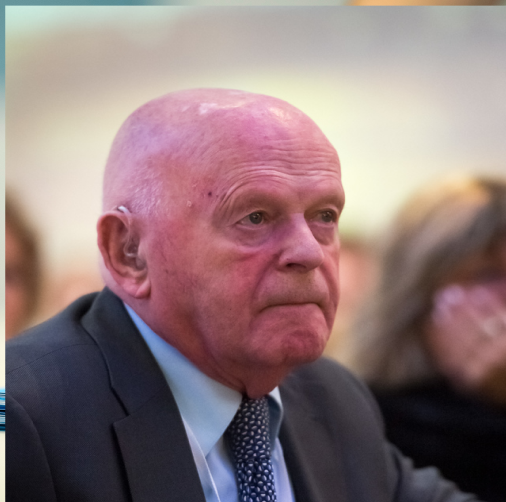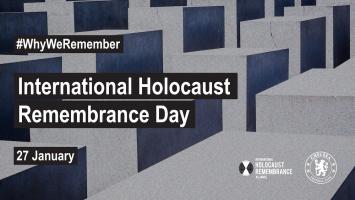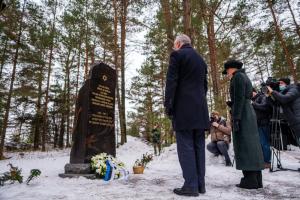
Interview with Sir Ben Helfgott
Born in 1929 in Pabianice, Poland, Ben survived Buchenwald and was liberated from Terezin in May 1945 by the Russian Army. From his extended family, only his sister Mala survived. After the war, Ben settled in Great Britain, which he represented at the 1956 and 1960 Olympics, and won a bronze medal at the 1958 Commonwealth Games in weightlifting. He now lives in London with his wife Arza and has three sons and nine grandchildren. He is a member of the UK delegation to the IHRA, and sat down for this interview in 2015.
Looking back to when the IHRA was established, what was the contemporary feeling and atmosphere concerning Holocaust issues?
Although there was great ignorance about the Holocaust when the IHRA was founded, I am delighted that we have made great progress since then. The most critical development for me was the demise of Communism; without this, the IHRA would never have come into existence. The reunification of Europe opened up new possibilities. In addition to Göran Persson and Bill Clinton, in the UK we were very fortunate to have in Tony Blair a Prime Minister who was thoroughly committed to this cause. Together, these conditions constituted perfect timing for creating the IHRA. My stand-out memories from the first IHRA Plenary are Persson’s speeches, but the whole atmosphere was phenomenal. Everyone there knew we were part of something historic and very special.
How would you describe the IHRA’s achievements?
Overall, excellent, but success is dependent on the country Chairs — it is up to them to build on the achievements of previous years and put their own stamp on proceedings. We are very fortunate in the UK to have Sir Andrew Burns, who is a great leader and someone who has galvanized our work. I must also give credit to the countries involved in instigating and arranging the creation of the Permanent Office in Berlin. This has been a great achievement and has given the organization a strong identity. I am delighted that more and more countries have become members and that still others are encouraged by the words and commitments of the Stockholm Declaration.
Can you describe some of the projects you have been involved with for the IHRA?
Although I am nominally a member of the Memorials and Museums Working Group, as a representative of the UK Holocaust Memorial Day Trust, I am very happy to assist with any aspect of the work of colleagues in the UK delegation and contribute to the IHRA in whatever way I can.
Can you comment on how the IHRA has changed between its inception and now, and what challenges do you foresee for the IHRA?
In light of recent events and current perceptions of the Holocaust, it is essential to hold on to what we created in 2000 in Sweden and stay focused on our original objectives. I am very determined about this. We must also encourage wider membership, so that people in other countries can have access to the IHRA’s formidable network and professional expertise. It is essential that we remain committed to the principles of the Stockholm Declaration — it is our bible. The IHRA was founded as a temporary task force.
How do you feel about the fact that it still exists 15 years later?
Although the IHRA began with only three member countries, almost immediately four more joined and from the outset there was a strong interest from other European countries to be involved. Without question, the IHRA will continue long after the survivors have.
What more could be done to enhance the IHRA’s role?
I feel strongly that we are achieving a great deal. We can always try to promote ourselves more but this should not detract from what we are doing or what we have achieved.
It is noticeable that you are the only survivor involved with the IHRA. Do you think survivors’ experiences, memories and legacies are being well represented and preserved?
Although I am confident that survivors’ messages are well preserved, it is up to organizations and governments in each country to accept this obligation and commit the necessary resources. Through the IHRA’s network, and thanks to the work of some remarkable organizations, we are fortunate to have access to some excellent materials.
Other than Feliks Tych, who was a member of the Polish delegation, are you aware of other survivors who have been involved with the IHRA?
No — only my friend Feliks, who I greatly miss from these proceedings. He made a great and important contribution to our work and it was with deep sadness that I learned of his passing.
Sign up to our newsletter to
receive the latest updates
By signing up to the IHRA newsletter, you agree to our Privacy Policy




